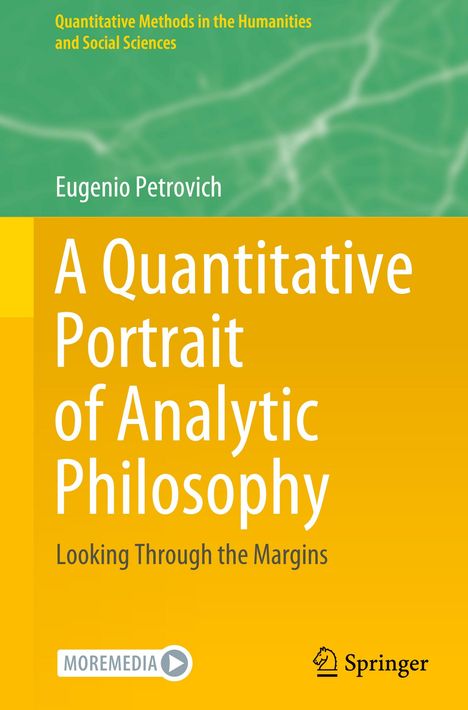Eugenio Petrovich: A Quantitative Portrait of Analytic Philosophy, Gebunden
A Quantitative Portrait of Analytic Philosophy
Buch
- Looking Through the Margins
lieferbar innerhalb 2-3 Wochen
(soweit verfügbar beim Lieferanten)
(soweit verfügbar beim Lieferanten)
Aktueller Preis: EUR 120,46
- Verlag:
- Springer Nature Switzerland, 04/2024
- Einband:
- Gebunden, HC runder Rücken kaschiert
- Sprache:
- Englisch
- ISBN-13:
- 9783031531996
- Artikelnummer:
- 11833143
- Umfang:
- 300 Seiten
- Ausgabe:
- 2024
- Gewicht:
- 617 g
- Maße:
- 241 x 160 mm
- Stärke:
- 22 mm
- Erscheinungstermin:
- 17.4.2024
- Serie:
- Quantitative Methods in the Humanities and Social Sciences
- Hinweis
-
Achtung: Artikel ist nicht in deutscher Sprache!
Klappentext
This book offers an unprecedented quantitative portrait of analytic philosophy focusing on two seemingly marginal features of philosophical texts: citations and acknowledgements in academic publications. Originating from a little network of philosophers based in Oxford, Cambridge, and Vienna, analytic philosophy has become during the Twentieth century a thriving philosophical community with thousands of members worldwide. Leveraging the most advanced techniques from bibliometrics, citations and acknowledgments are used in this book to shed light on both the epistemology and the sociology of this philosophical field, illuminating the intellectual trajectory of analytic philosophy as well as the social characteristics of the analytic community. Special attention is dedicated to the last forty years, providing insights into a phase of analytic philosophy which is still understudied by historians of philosophy.In the eight chapters of the book, readers will find not only numerous quantitative investigations and technical explanations, but also a robust theoretical framework and epistemological reflections on the strengths and limitations of quantitative methods for the study of philosophy. With its strong interdisciplinary appeal, this book will engage a wide range of scholars, including historians of philosophy seeking new methodologies, analytic philosophers interested in a new look at their discipline, and scholars in digital humanities, bibliometrics, and quantitative studies of science, who will find many innovative techniques for investigating disciplinary fields.

Eugenio Petrovich
A Quantitative Portrait of Analytic Philosophy
Aktueller Preis: EUR 120,46
